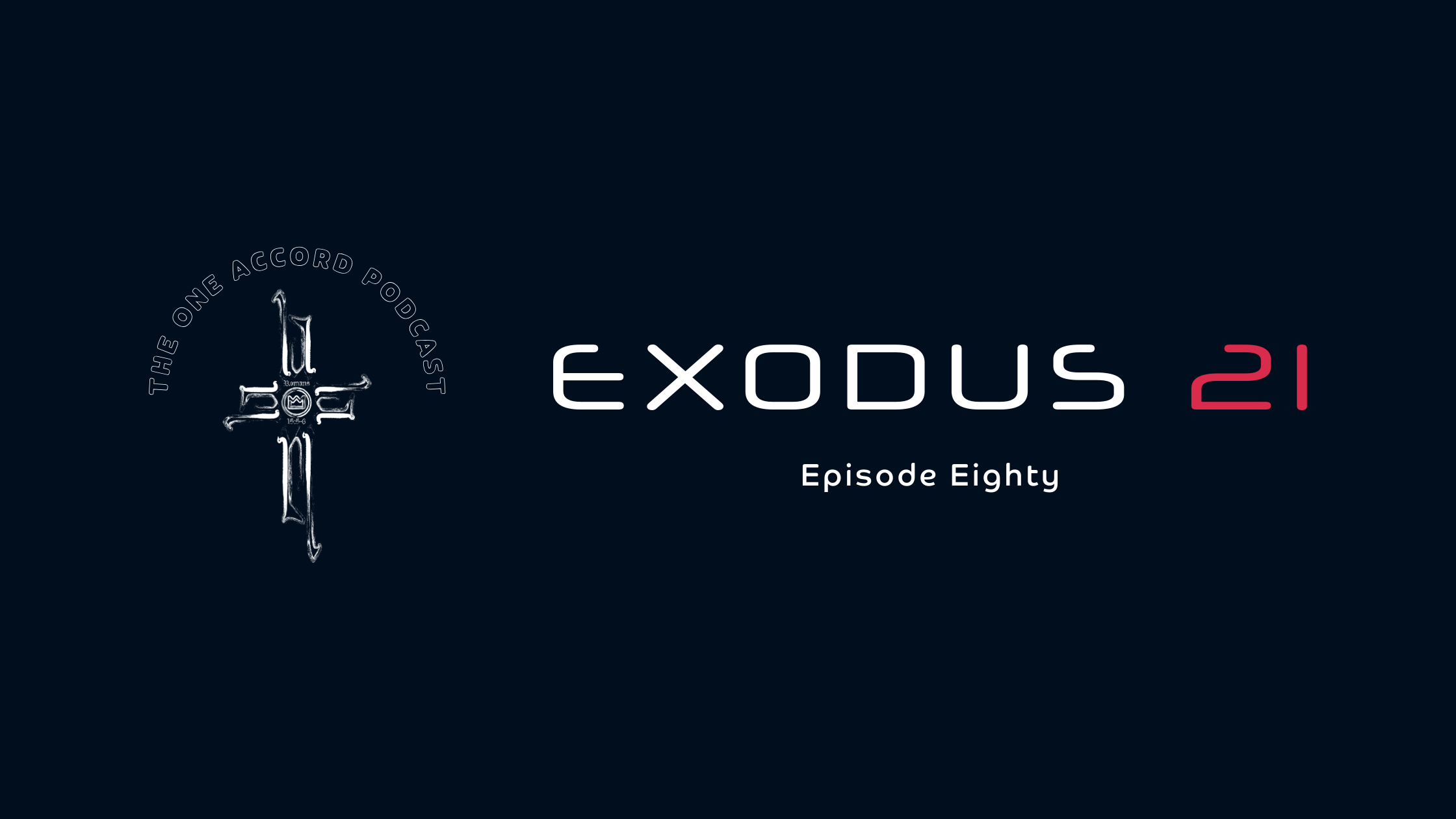Exodus 21
Hebrew slavery laws, personal injury codes, and proportional justice: God’s ancient legal system.
Let’s talk about it.
Episode Summary
In this episode of the One Accord Podcast, the hosts delve into Exodus chapters 21, exploring the complexities and controversial themes within these biblical laws. They discuss the relationship between the Ten Commandments and subsequent laws, the nature of slavery in biblical times compared to modern understandings, and the implications of polygamy and conjugal rights as outlined in the text. The conversation emphasizes the importance of understanding these laws within their historical and cultural context, while also reflecting on their relevance today. In this conversation, the speakers delve into the complexities of biblical law, particularly regarding marriage, sin, and the nature of intent. They explore how certain laws may have been accommodations for the cultural context of the time, and discuss the implications of these laws on modern understandings of morality and justice. The conversation also touches on the severity of sin, the consequences of actions, and the varying degrees of punishment in biblical law, ultimately leading to a nuanced discussion about the nature of sin and its implications for believers today.
Key Takeaways
The Ten Commandments serve as a foundation for the laws that follow in Exodus, elaborating on moral principles.
Not all laws in Exodus are moral; some are ceremonial and specific to the cultural context of ancient Israel.
The discussion highlights the differences between biblical slavery and American slavery, emphasizing the temporary nature of Hebrew slavery.
Hebrew slaves had rights and protections that were not present in American slavery, including the possibility of freedom after six years.
The hosts explore the implications of the laws regarding slavery and how they reflect God's character and purpose.
The conversation touches on the idea that the laws were given for a specific time and purpose, not necessarily meant to be eternal.
The hosts discuss the concept of polygamy and how it is addressed in the laws of Exodus, questioning its alignment with the biblical standard of marriage.
The discussion concludes with reflections on the relevance of these laws in contemporary society. Polyamory is viewed through a biblical lens as problematic.
Certain biblical laws were accommodations for the cultural context.
Marriage is ideally between one man and one woman.
Intent plays a crucial role in determining guilt or innocence.
Not all sins carry the same weight or consequences.
The law reflects varying degrees of severity for different crimes.
Biblical law aims to protect vulnerable individuals in society.
The concept of sin is often misunderstood in modern contexts.
Punishments in biblical law were meant to fit the crime.
The discussion of hell includes varying degrees of suffering.

